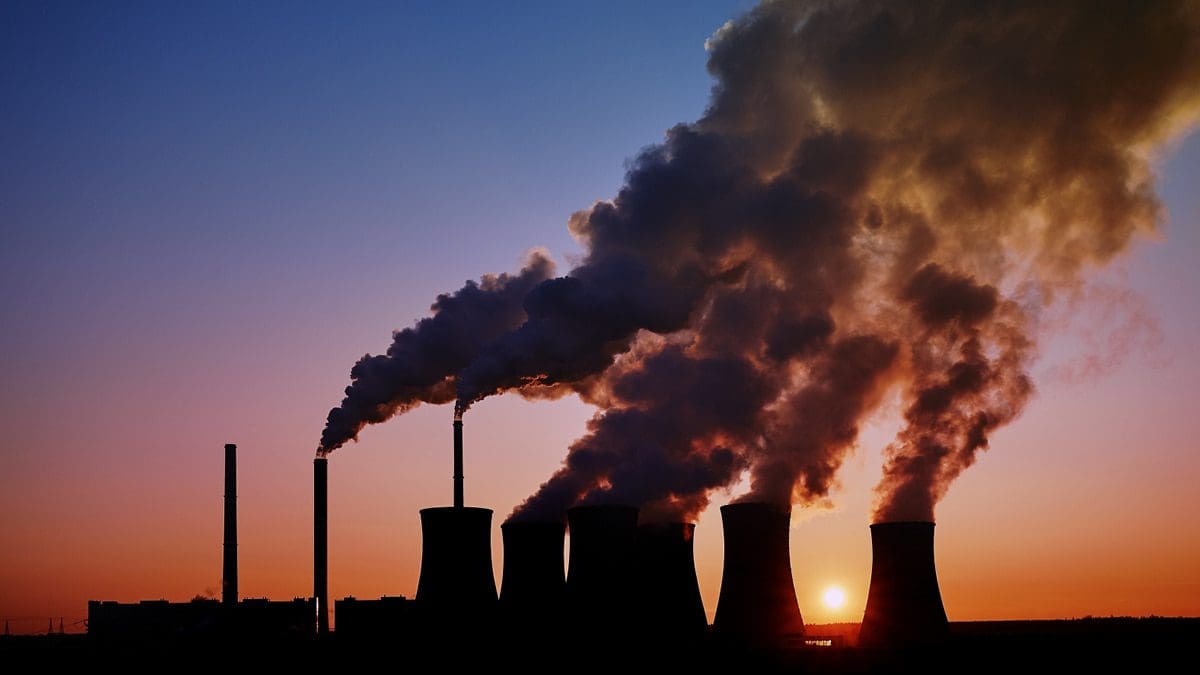During last week’s EU summit, leaders of the bloc discussed issues related to the coronavirus, migration and, of course, climate change. As the usual suspects of Central Europe rather expectedly voiced their problems with the next step towards carbon neutrality, westerners began to wonder once again if these countries were only ignorant or flat-out evil who wish to poison our planet indefinitely. The answer is more complex than that, of course.
When President Trump announced the United States’ withdrawal from the Paris Agreement in 2017, the outrage was almost unanimous across the West. Trump was promptly condemned as the villain of the ‘“climate change story”, the evil madman who will cause all of our demise by refusing to cut carbon emission. In reality, President Trump did not want to pollute more than the rest of us, he only objected to the rushed energy transition forced from above by transnational organizations, which seem to be careless about the specific differences of certain countries and their plans’ effects on their economies. Now something similar pays out in Brussels, as well.
The European Green Deal is an ambitious set of policy initiatives put forward by the European Commission, aiming to make the EU the world’s first climate neutral region in the world by 2050, which means reducing the emissions of greenhouse gases to zero in all 27 member states in the next thirty years. And despite there is no one in the bloc who would believe that carbon emissions are not harmful to the environment, not everyone supports the EGD with the same enthusiasm.
Central European countries often like to showcase their conservative character,
and today’s sometimes toxically bipolar political atmosphere wants you to believe that conservatism—and the right in general—does not care about environmental protection, like it was an entirely leftist concern. Which is simply not true. Conservatism, as defined by the late Sir Roger Scruton, ‘tells us that we have collectively inherited good things that we must strive to keep‘, and one of those good things is the ‘protection of our environment as a shared asset, which cannot be seized or destroyed at the whim of powerful interests’.[1] The preservation of the natural beauty of our environment has always been one of the core ideas of conservatism, regardless of what leftist media tries to shove down our throats nowadays. No, conservatives’ reluctance towards climate policies is coming from an entirely different position.
The fundamental problem with international climate policy initiatives is the same problem we experience every day with western transnational structures, like the EU. It is how the countries which hold the bulk of the power within the group tend to behave in a rather ignorant and condescending way. Let me explain what I mean in the context of climate policies.
Carbon emission is one of the most serious problems our world faces, but we cannot ignore the different nature of the pollution emitted by developed and developing countries. Most of the CO2 output generated by the former are “lifestyle emissions”, while the latter are responsible for mainly industrial pollution. This means that residents in developed, higher GDP/capita countries pollute by having more and bigger cars, bigger houses and a multitude of electronic devices that are not as common in poorer countries. They, on the other hand, are still developing their economies and in order to reach the former’ economic prosperity they need more industrial power – and in turn, more pollution. One cannot magically transform a coal-based industrial sector to run on renewables without ample economic output first to propel the change, a stage that most Western European countries have gone or going through successfully, but not the eastern half of the continent, with the legacy of communism still behind them. So, the idea of equal burden-sharing in the fight against climate change throughout the EU is an ignorant double-standard at best.
For example, more than 44 per cent of Germany’s energy supply is already coming from renewables, with only 7,5 per cent from hard coal. Renewables in the Visegrad countries, on the other hand, account for around or less than 10 per cent of the total supplies needed, while solid fossil fuels—mainly hard coal—account for more than one quarter of it in average (and for a staggering 47 per cent in Poland), and the use of all fossil fuels (coal, gas, oil) is averaging 74 per cent. It is clear that while Germany already has most of the required infrastructure to ditch coal and other fossil fuels in the next decades entirely, Central Europe still depends on them, making the envisioned transition much more painful economically for them than for their western partners.
One of the results of Central European lobbying regarding the matter
came into being to solve this exact problem. The so-called ‘Just Transition Fund’ of the EU, proposed by the European Committee in 2019, aims to help the countries, regions and sectors which are the most affected by “decarbonisation”. So, in theory, everything has been taken care of, but the reality is that we are not just there, yet. Firstly, the Fund’s less than five billion euro budget will not be enough to cut all the losses of the highly coal-dependent countries at all, and secondly, it is still just an empty framework without a well-designed strategy behind it, promising assistance in the long run, while the EC demands commitments to be made today.
Last week’s summit was another example of this kind of climate bullying, with rich countries trying to force the rest of us to make “minor” sacrifices. One of the main points of the agenda was the Commissions’ massive ’Fit-for-55′ policy package, set to be released on 14 July, detailing the steps needed to reach a 55 per cent net emission reduction by 2030 (compared to the 1990 baseline). The price of of this transition, of course, must be paid somehow and this was the main topic of the debate around the issue. Western countries think that a new EU-wide climate tax on fuel and housing is the right solution, while the opponents of this plan (which include all of Central Europe) wish to tax the international corporate giants instead, who are responsible for a massive chunk of overall pollution. Why should Hungarian, Polish, Slovak or Czech families pay for the consequences of reckless capitalist practices which started long before their countries got rid of the Soviet yoke? First we need to tackle the issue of the “powerful interests” of these corporations – as Scruton pointed out – then we can talk about the next phase of a just transition.
There should be no misunderstanding: Central Europe wants to become carbon neutral just as much the West does. Our vetoes do not mean we want to burn every chunk of coal left on the planet, but quite the contrary. Central Europe fights for a way to effectively take part in the de-carbonisation project—without hurting their economies, workers and families—and only wants the rest of Europe to understand that. We are not the same and we need different paths to reach the same goal. It is hard to reach a sound compromise for differentiated treatments, but, nevertheless, we need one because that is the only way we could become greener together.
[1] Scruton, Roger: How to be a Conservative. Bloomsbury Continuum, 2014, Kindle edition, loc. 37.








